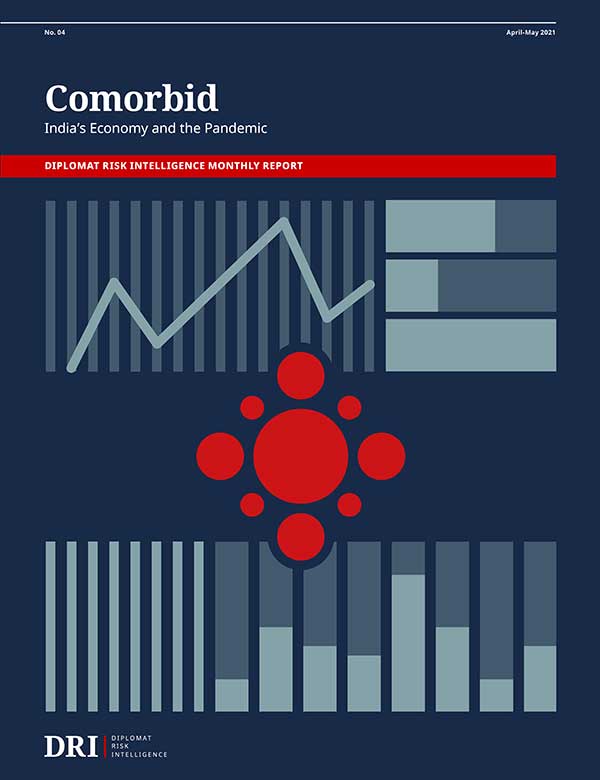| Welcome to the latest issue of Diplomat Brief. This week our top story explores the armed resistance to Myanmar’s military junta. We also have an interview with Dr. Adriana Elisabeth, a senior political analyst at the Center for Political Studies at the Indonesian Institute of Sciences (LIPI), about the roots of the conflict in West Papua and the Indonesian government’s response to a recent uptick in insurgent activity. |
| Story of the week |  | SECURITY Myanmar’s Armed Resistance at the CrossroadsWhat Happened: Since the coup on February 1, more and more of Myanmar’s protesters have turned to armed resistance in the face of violent retaliation from Myanmar’s military. But even with support from ethnic armed organizations, can the People’s Defense Forces truly stand up to the Tatmadaw? Our Focus: “The world is watching while terror is shaking Myanmar,” Gum Tun, an ethnic Kachin man living in Yangon, told The Diplomat. “Aung San Suu Kyi would never support violence, but we can’t just wait to get help until we die… If the U.N. would have responded more quickly, there would be no PDF.” What Comes Next: Those joining the People’s Defense Forces see no other option. They have given up hope for international intervention but are not willing to live under military rule after 10 years of admittedly imperfect democratic reforms. With the resistance taking up arms, Myanmar is drawing one step closer to full-scale civil war as the world watches from the sidelines. Read this story |
| Behind the News | INTERVIEW Adriana ElisabethDr. Adriana Elisabeth, a senior political analyst at the Center for Political Studies at the Indonesian Institute of Sciences (LIPI), on the current situation in Papua: “In the recent development, primarily since 2018, the military has conducted operations in highland regions of Papua Province, where most of the rebel groups are concentrated… These have become war zones.” Read the interview |
| This Week in Asia | Northeast Asia North, South Korea Restart CommunicationsIn June 2020, Pyongyang severed all communications channels with Seoul, literally blowing up their joint liaison office in Kaesong. But on Tuesday, North and South Korea announced the resumption of those channels. It’s the first positive step in inter-Korean diplomacy in over a year. With just eight months left in South Korean President Moon Jae-in’s administration, can he keep up the momentum? Find out more | South Asia Secretary Blinken Goes to IndiaU.S. Secretary of State Antony Blinken is in India from July 27 to 28, where he will meet India’s Prime Minister Narendra Modi, External Affairs Minister S. Jaishankar, and National Security Advisor Ajit Doval. The visit will be the India-U.S. relationship's latest test as Blinken seeks to balance geopolitical alignment with India and increasing concerns for the health of India’s democracy. Find out more | Southeast Asia Malaysia’s Parliament Is in Session – FinallyFor the first time since January, Malaysia’s Parliament is meeting, albeit for an abbreviated session without any votes scheduled. It’s an important political test for Prime Minister Muhyiddin Yassin, whose ruling coalition lost the support of its biggest member, UMNO, earlier in July. Opposition legislators are demanding Muhyiddin resign and that a vote be held to elect a new prime minister. Find out more | Central Asia Tajik Health Minister Reportedly Beaten up by President's NephewsYou read that right: According to multiple reports, Tajikistan's health minister was assaulted last week by three of President Rahmon's nephews following the death of their mother, allegedly from COVID-19. Tajikistan, which proclaimed itself COVID-free back in January, is most certainly facing a devastating new wave of infections. State statistics continue to present a different reality entirely. Find out more |
| Visualizing APAC |  | A North Korean oil tanker pulled up to a Chinese port in April this year, the such first recorded visit in nearly half a decade, after Pyongyang eschewed traditional trading methods in favor of sanctioned, difficult to trace ship-to-ship transfers at sea. That could potentially put China in violation of U.N. sanctions. See the full picture |
| Word of the Week | ECONOMY 躺平Tǎng píng, literally “to lie flat” in Mandarin, the term has been adopted by young Chinese as a “resistance movement” to a “cycle of horror” from high-pressure schools to jobs with seemingly endless work hours. Find out more |
|  |




